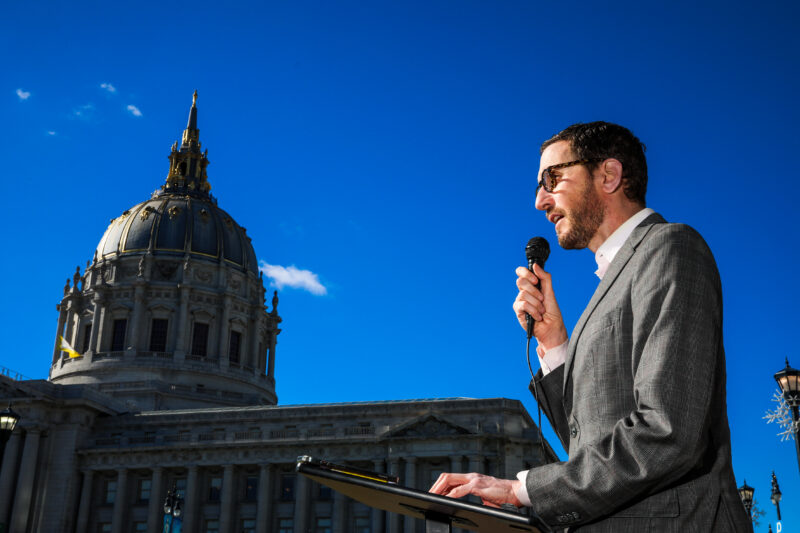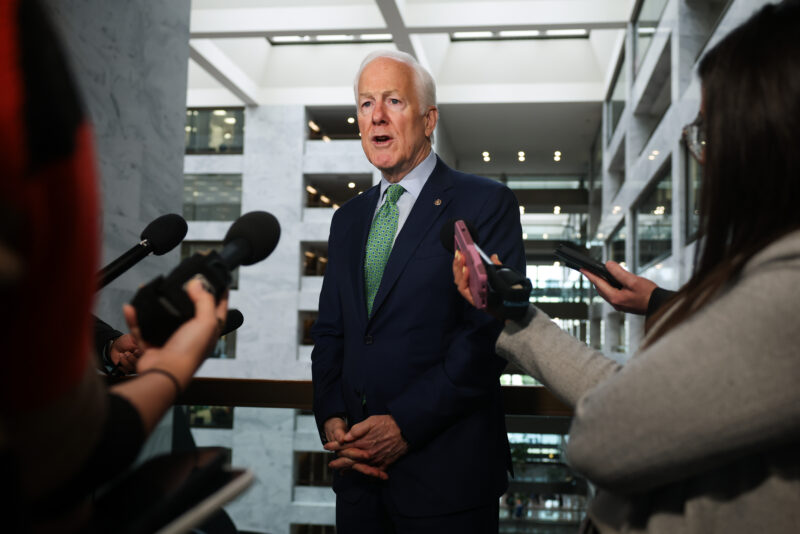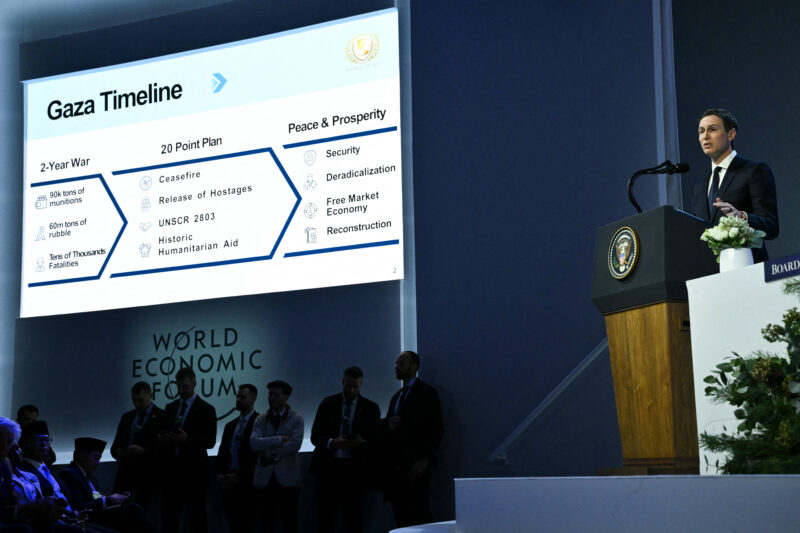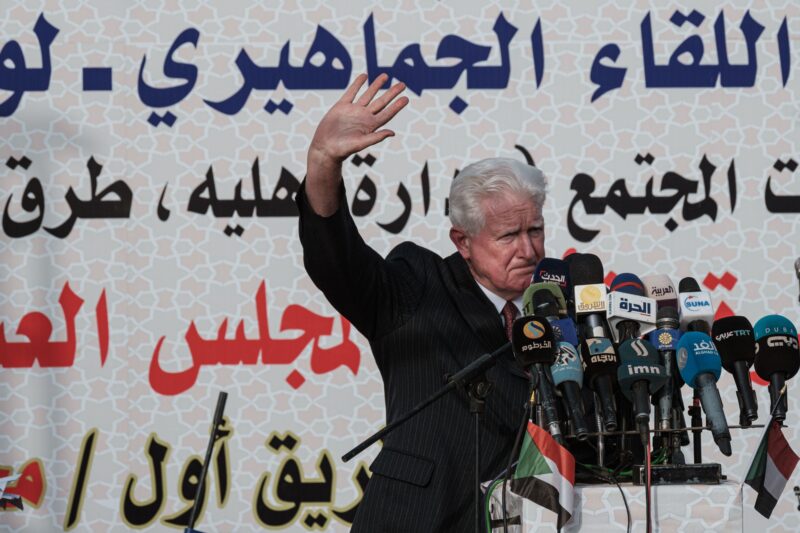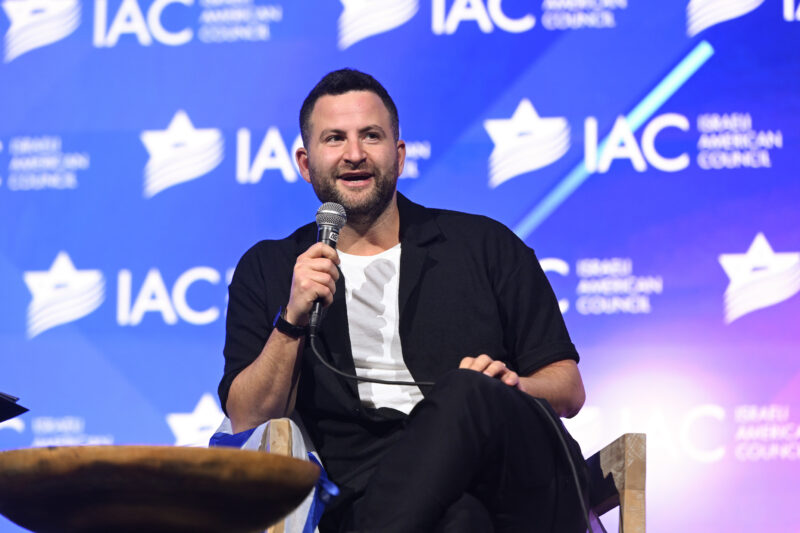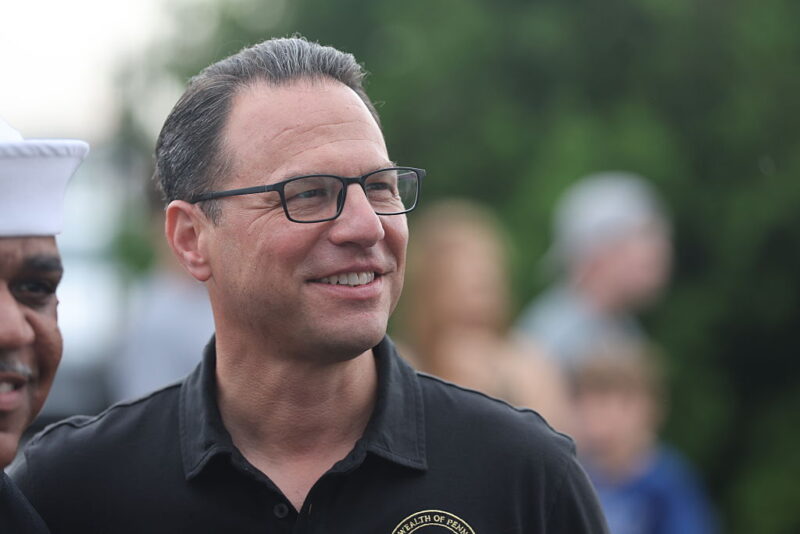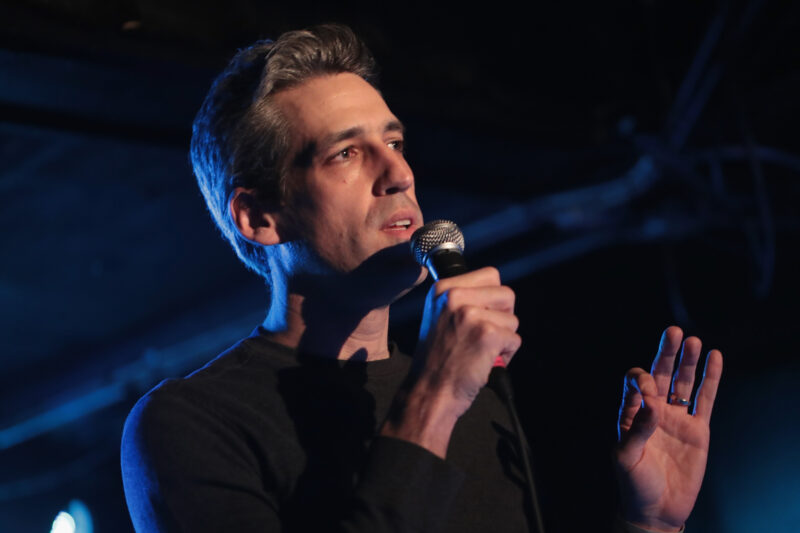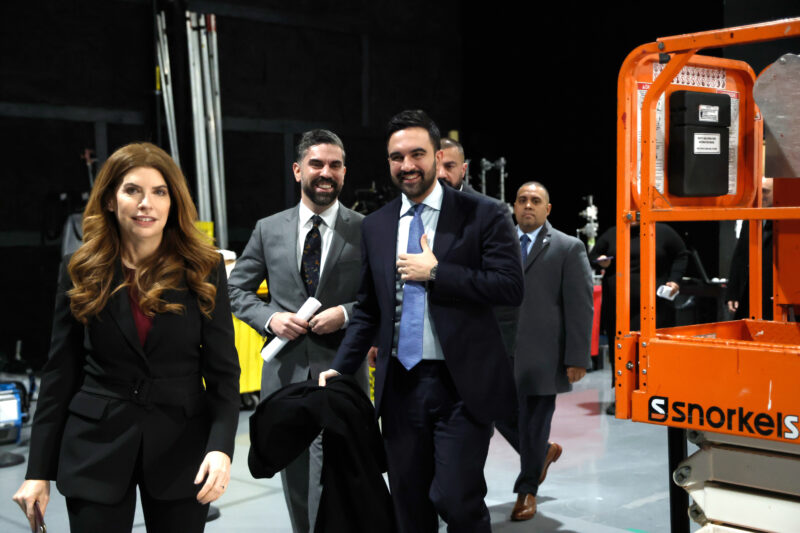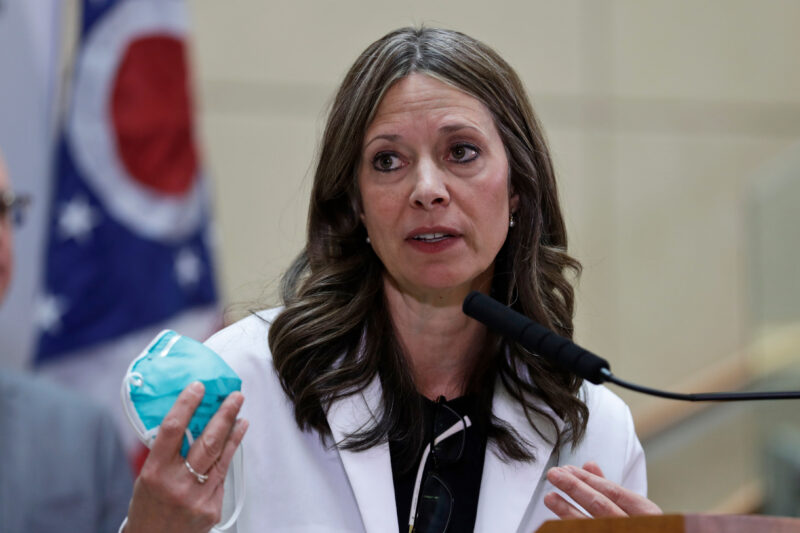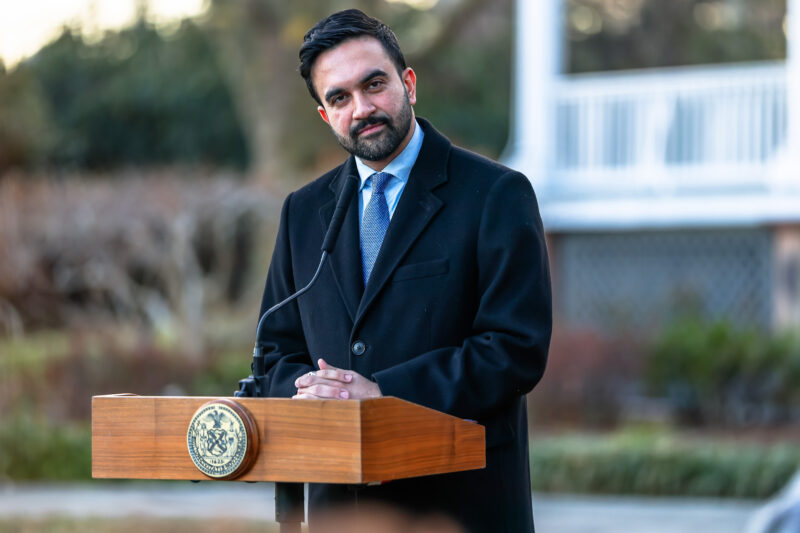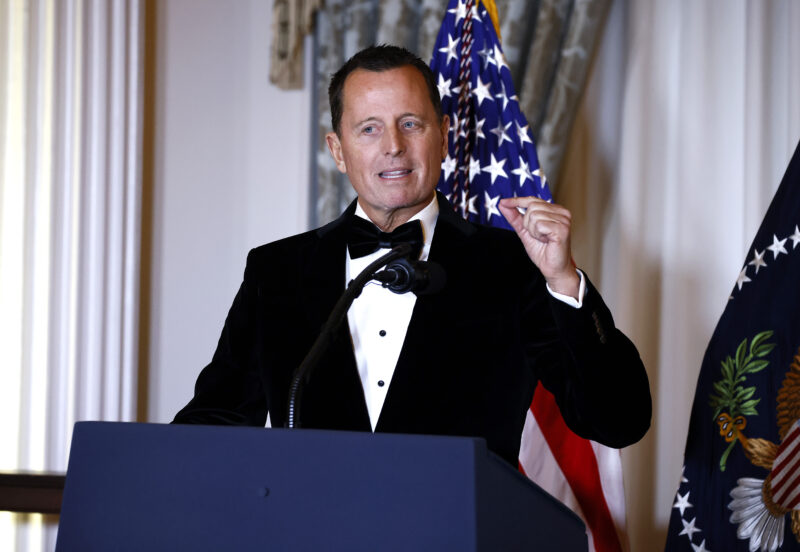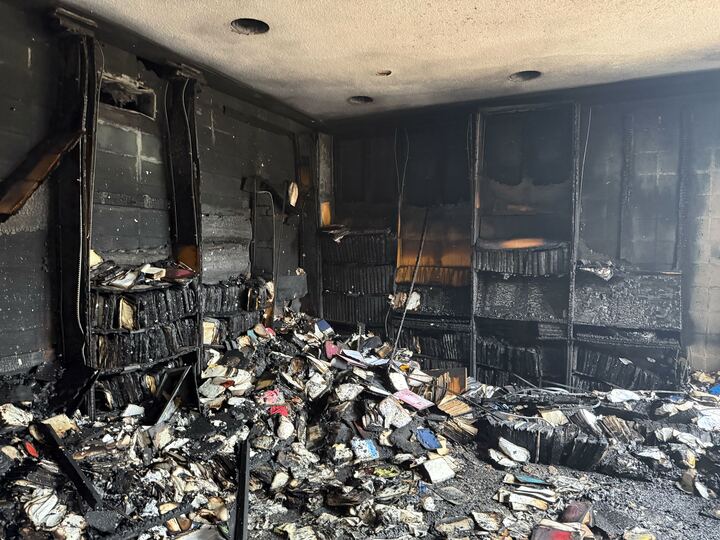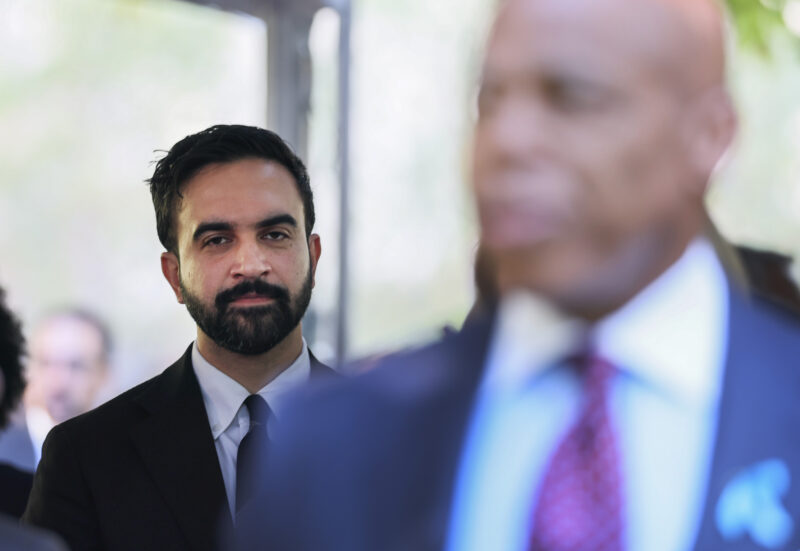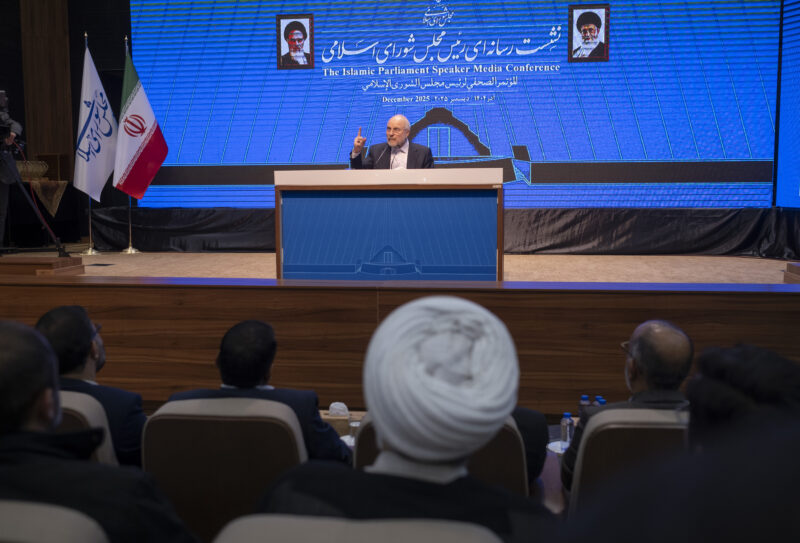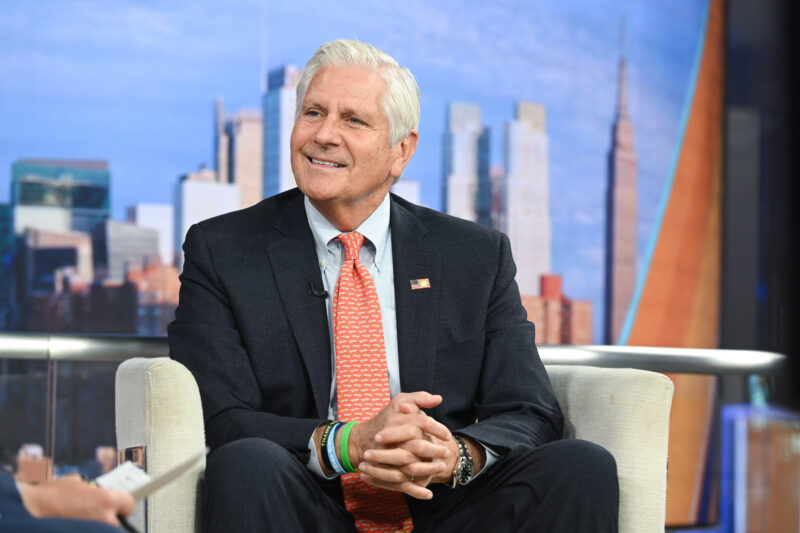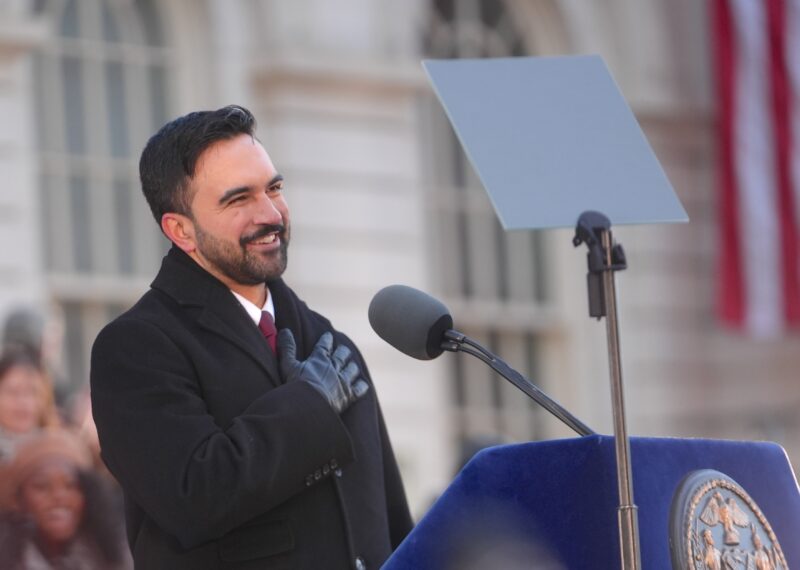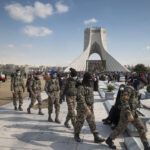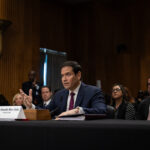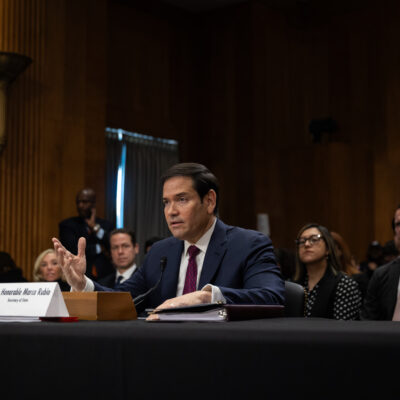Arab leaders open to hybrid Gaza evacuation plan, Graham says
Senators skeptical about Trump’s Gaza plan; Graham calls on U.S. to greenlight Israeli strike on Iran

Lahav Harkov
From left to right: Sens. Adam Schiff (D-CA), Richard blumenthal(D-CT), Lindsey Graham (R-SC), Sheldon Whitehouse (D-RI), Joni Ernst (R-IA) and Andy Kim (D-NJ) deliver a press conference in Tel Aviv, Feb. 18, 2025.
Arab states are working on a hybrid plan for postwar Gaza that would incorporate voluntary migration from the enclave alongside reconstruction for those who wish to stay, Sen. Lindsey Graham (R-SC) said during a press conference in Tel Aviv on Monday.
Graham, together with Sen. Dan Sullivan (R-AK), led a delegation of senators in Israel including Joni Ernst (R-IA), Andy Kim (D-NJ), Adam Schiff (D-CA), Sheldon Whitehouse (D-RI) and Richard Blumenthal (D-CT), who also addressed efforts to counter the Iranian nuclear threat and bring about Saudi-Israel normalization in their remarks to the press.
Graham’s remarks came as Saudi Arabia was spearheading efforts by Gulf Cooperation Council members — the United Arab Emirates, Bahrain, Oman, Qatar and Kuwait — as well as Egypt and Jordan, to come up with a plan to rebuild Gaza and sideline Hamas.
A mini-summit on the subject set to be held in Riyadh on Friday was called in response to President Donald Trump’s plan to evacuate all Palestinians from Gaza and have the U.S. take over and rebuild it. Trump has been unclear on whether, when and how many Palestinians would be able to return to Gaza.
Graham said that the Arab leaders’ meeting was “to come up with a plan that would allow Palestinians to leave if they would like, but if they don’t, [to] stay in place while there’s reconstruction.”
“President Trump started a conversation that was long overdue,” Graham said. “I’m quite optimistic that the Arab world will come up with a plan to show President Trump how to deal with the Palestinian issue without driving them all out.”
Blumenthal said he spoke with Jordan’s King Abdullah II recently, who said “the plan the Arab states will offer to President Trump provides a realistic prospect for normalizing relations, self-determination for Palestinians and security for Israel. If those components are part of a realistic plan, it could be a game-changer for the region.”
Graham said that in the senators’ meetings with Netanyahu and other officials — they met with Israeli Defense Minister Israel Katz, Foreign Minister Gideon Sa’ar and Knesset Speaker Amir Ohana — the Israeli officials said they believe that Palestinians should be given the option to leave Gaza, if they wish. “They are not talking about a forced exodus by Israel or anyone else.”
Blumenthal said that “the Trump plan is a non-plan. It’s a hot mess.”
“The possibility of a takeover … involving any troops or taxpayer dollars is simply a nonstarter,” he added.
Graham said that “there is very little appetite for the U.S. to take over Gaza in any way,” nor should Israel be involved in reconstruction or demilitarization of the area.
“Who will change the education system in Gaza? The Arabs. Who will give economic hope to the Palestinians? The Arabs. We’re not spending a dime. We didn’t start this war. Deradicalization and demilitarization should be the role of the Arabs,” Graham said.
As for Israeli security, Schiff said that “the magnitude of the horror inflicted on Israel 500 days ago [on Oct. 7, 2023], but also the wave of antisemitism it unleashed around the world … must contribute to a sense in Israel of being alone. We want you to understand that you’re not alone — you have a very powerful friend and ally standing with you, that is, the United States of America.”
Schiff emphasized that “Hamas cannot be allowed to impose any authority in Gaza again; that is a nonstarter.”
Graham also said that “no one expects Israel to make any kind of deal that would lead to another Oct. 7 and that would allow Hamas to stay in charge.”
“Israel should be able to go anyplace in Gaza,” Graham proposed. “We didn’t leave Germany or Japan [after World War II]. It would be foolish to expect Israel to leave the day Hamas is destroyed. It has legitimate military concerns … Israel needs the security presence required to prevent another Oct. 7.”
However, Graham clarified that Israeli military access to Gaza does not mean a permanent Israeli occupation of Gaza.
The senators all expressed hope that the hostages will be released soon, with Democrats calling to extend the current cease-fire, while Graham said it is up to Israel whether it wants to continue to the deal’s second stage.
Kim said that he spoke about the last living U.S. hostage in Gaza, Edan Alexander, his constituent in New Jersey, at every meeting in Israel.
“Hostages are not leverage and should not be used as such means,” Kim said. “The fact that they are is despicable … This is a moment right now, in this diplomatic window, to push forward for the release of them all.”
Graham repeatedly said that countering the Iranian nuclear threat must be prioritized, adding that the Trump administration will soon have to choose between a military response and negotiations. The senator said his preference would be for the U.S. to “help Israel deliver a decisive blow against Iran nuclear infrastructure.”
However, if the administration decides to negotiate with Iran, it should adopt a “Libyan model,” Graham said, by which they would have to decide what success looks like and set a limit for the time in which talks would take place.
If the talks fail, “we need to quickly pivot to give Israel the capabilities they’re lacking — it’s not much — to give the decisive blow against the Iran nuclear program. One Holocaust was enough,” Graham said.
“I trust President Trump to make sure that we do not have a nuclear breakout in Tehran on his watch,” he added. “Iran will never know peace in this region as long as the Ayatollah and his henchmen terrorize the region.”
Ernst — who Graham quipped “can’t say hello without mentioning Iran” — warned the Islamic Republic that “we are coming for you.”
“Iran, listen very clearly,” she said. “We will put maximum pressure on you and work with our Israeli partners to make sure you do not succeed economically, militarily or politically in this region. There is no daylight between Israel and the U.S.A.”
Blumenthal also touted the effectiveness of “maximum pressure” sanctions and said Netanyahu emphasized the importance of sanction enforcement to deter and weaken Iran.
“I would remind the people of the U.S. that the [Houthi] flag says ‘death to Israel, death to America.’ That’s the common mantra among the Iranian proxies … We have a mutual security interest here because the absence of a secure and lasting peace in this region means a continuing source of terrorism for the U.S.,” Blumenthal said.
The senator from Connecticut noted that “the president said if there wasn’t a release of the hostages, there will be hell to pay. Now, Iran ought to be the one to pay hell because, ultimately, they are responsible … They are the head of the snake.”
The senators also saw great opportunity for the region due to Israel having “broken Iran’s axis,” as Blumenthal called it, referring to its successes against Hezbollah and Hamas, as well as the fall of President Bashar Assad in Syria.
Graham said that a day before the Hamas attacks on Israel, Saudi Crown Prince Mohammed bin Salman was “very enthusiastic” about a breakthrough that was set to come in a matter of days.
“Oct. 7 was meant to stop normalization,” Graham said. “Iran’s worst nightmare was Arabs and Israelis reconciliation and solving the Palestinian problem in perpetuity.”
Now, the senator said, “we’re a ways away” because of Israelis hardening their views on reconciliation with the Palestinians and the Arab world seeing “morning, noon and night attacks on the Palestinians.”
“My message is not to give up. I’m very optimistic that we can break through, because there is no other solution,” he said.
Graham also noted that the leadership of the UAE and Saudi Arabia have “the same view of radical Islam as Israel does” and reject Hamas.
Sen. Whitehouse emphasized the need for a deal to include “an understanding” for the Palestinians that Arab states “can bring home to their populations with pride … The best way to do that is to make sure Hamas has no power in Gaza again. That leaves open the question: once Hamas is gone, what is governance for the remaining Palestinians in Gaza? That question could disrupt the comfort of the Arab partners as they conclude the deal.”
Schiff said that while a two-state solution may be “unpopular” in Israel, he hoped that when “not just a sense of security by Israelis but a reality of security has been restored, we can once again think about what a future can look like.”
Amid reports that the Pentagon is preparing plans to withdraw troops from the Middle East, Graham said that “a relatively small force in Kurdish-controlled areas [of Syria] not only prevents ISIS from coming back but will provide the level of stability we need in the region.”
The senator also said that Netanyahu told him “American troops in Iraq and Syria are very stabilizing to the region.” If they were withdrawn, Netanyahu believes the “ripple effect would be very dramatic,” Graham said.
























